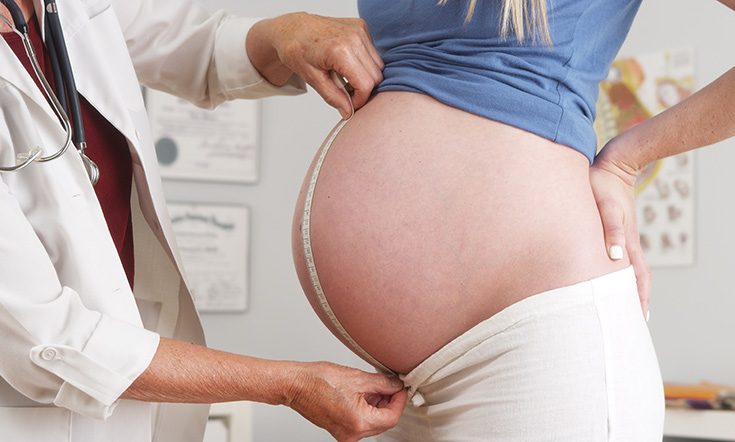

In the final weeks of pregnancy it probably feels like there isn’t much more room for your baby to grow. This often leads to pregnant women asking their doctor or care giver how big their baby is, or how big will their baby be when it’s born.
Checking your baby’s growth is an important part of the care you are given during pregnancy. Your doctor will check your baby’s growth at each appointment and if your baby is not where they expect it to be, they may alter your level of care, or suggest some interventions.
There are many factors to consider when trying to guess your baby’s weight. An old-fashioned way was to subtract the mother’s pre-pregnancy weight from her current pregnant weight to determine how heavy her baby was, but this method doesn’t take into consideration things such as the weight of the placenta, or the volume of amniotic fluid around your baby.
Doctors today will measure ‘fundal height’, which is the length between your pubic bone to the top of your uterus. After 20 weeks of pregnancy the fundal height usually measures around the same as the number of weeks pregnant you are.
If doctors are concerned about your baby’s size they will often suggest an ultrasound at around 36 weeks to check that all is well. During this scan they take measurements from four different areas.
- Head circumference – this is the distance around the outside of your baby’s head. They will also check the the distance between each side of the baby’s head. Head size can vary significantly so this alone is not a reliable way to determine baby weight.
- Abdominal circumference – this is the distance around the baby’s belly. This is a more accurate predictor of weight.
- Length of femur – this is the bone in the upper thigh. Again, this alone is not an accurate predictor of weight as leg length varies.
The combination of these measurements can be used to help predict your baby’s weight. But doctors can still get this wrong, even after the ultrasound. It is acknowledged that there is roughly a 15% margin for error.
Babies grow in uneven spurts, which can lead to inaccurate predictions. If your baby is healthy and everything is going well, you don’t need to worry about how big or small your baby will be. Your doctor will make recommendations based on your unique circumstances. Your baby’s weight will be another surprise you can enjoy on their arrival.























